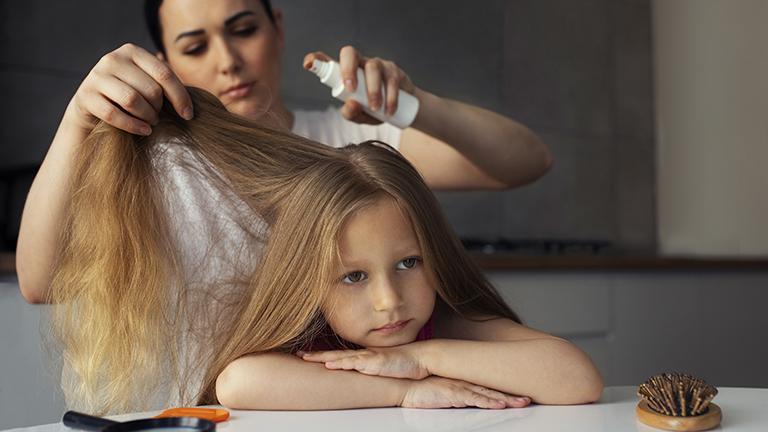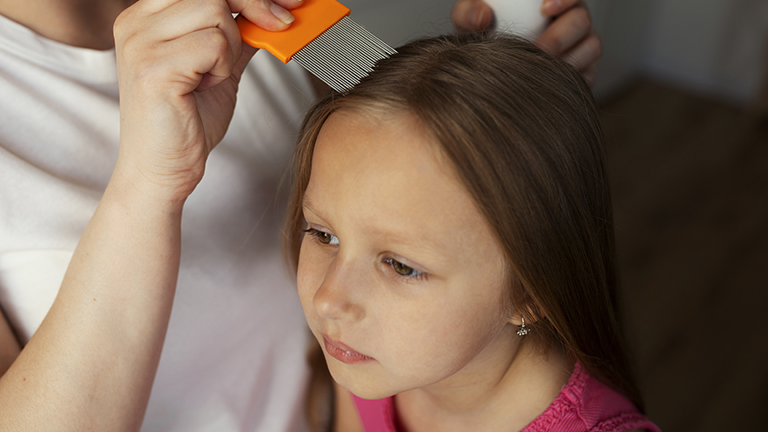Every parent wants their baby to have healthy, soft, and naturally shiny hair. The early years of life are essential for scalp nourishment, follicle development, and overall hair growth. Choosing the best oil for baby hair growth naturally is not just about appearance—it is about strengthening delicate strands, preventing dryness, and supporting long-term scalp health.
In many cultures, oiling a baby’s hair is a traditional practice that has been passed down for generations. Natural oils provide vitamins, fatty acids, and antioxidants that improve circulation, hydrate the scalp, and enhance hair growth safely. Unlike chemical-based products, natural oils are gentle, toxin-free, and designed to protect sensitive baby skin.
This guide explores the best natural oils for baby hair growth, their benefits, application methods, homemade remedies, and expert recommendations. Whether you are a parent in the USA, UK, Canada, or any other part of the world, this article will help you understand how to nurture your baby’s hair with safe, organic choices.
Why Natural Oils Are Important for Baby Hair
Babies are born with delicate hair and scalp. Their hair follicles are still developing, which means they require special care. Using harsh shampoos, synthetic oils, or chemical-based products may lead to scalp irritation, dryness, or even hair fall. This is why choosing the best oil for baby hair growth naturally becomes essential.
Natural oils are rich in:
- Vitamins (A, E, D, B-complex) for hair nourishment
- Fatty acids that protect the scalp from dryness
- Minerals that support healthy follicle development
- Antioxidants that shield hair from environmental stress
Regular oil massage also improves blood circulation in the scalp, which helps stimulate hair follicles and encourage stronger hair growth. Additionally, massaging your baby’s scalp can have a calming effect, helping them sleep better and feel more relaxed.
Best Oils for Baby Hair Growth Naturally
Coconut Oil Benefits for Baby Hair
Coconut oil is one of the most popular choices for baby hair care. It is lightweight, easy to absorb, and suitable for sensitive skin. Rich in lauric acid, it penetrates deeply into the scalp and nourishes hair roots. Coconut oil also has antibacterial and antifungal properties, keeping the scalp clean and free from infections.
Benefits of coconut oil for babies:
- Strengthens hair from the roots
- Prevents cradle cap by moisturizing the scalp
- Promotes thicker and shinier hair
- Gentle and safe for newborns
Parents in USA, UK, and Canada often prefer cold-pressed organic coconut oil for maximum purity and effectiveness.
Olive Oil for Scalp Moisture
Olive oil is another natural remedy trusted for generations. Packed with vitamin E and antioxidants, olive oil helps soften baby hair and keep the scalp hydrated. Its moisturizing effect prevents flakiness and supports natural hair growth.
Benefits of olive oil for babies:
- Deeply nourishes the scalp
- Reduces dryness and flakiness
- Encourages smooth and soft hair
- Provides protection against environmental damage
A gentle massage with warm olive oil before bedtime is a traditional baby care method across many households worldwide.
Almond Oil for Hair Strength
Sweet almond oil is a powerhouse of nutrients like vitamin E, magnesium, and calcium, which are vital for strong hair growth. It helps reduce hair breakage, improves hair texture, and provides deep scalp nourishment.
Benefits of almond oil for baby hair:
- Strengthens fragile baby hair
- Promotes natural shine
- Provides essential minerals for scalp health
- Hypoallergenic and safe for sensitive skin
For parents looking for the best oil for baby hair growth naturally, almond oil is a gentle yet effective option.
Castor Oil for Thicker Baby Hair
Castor oil is well known for promoting thick hair growth due to its high content of ricinoleic acid and omega-6 fatty acids. However, it is thicker compared to other oils and should always be diluted with lighter oils such as coconut or almond oil before applying to a baby’s scalp.
Benefits of castor oil for babies:
- Stimulates hair follicle activity
- Promotes denser hair growth
- Protects scalp with antifungal properties
- Reduces dryness
This oil is especially useful if parents notice slow hair growth or sparse baby hair.
Jojoba Oil for Gentle Scalp Care
Jojoba oil closely resembles the natural sebum produced by the scalp, making it an excellent oil for maintaining balance and hydration. It is light, non-greasy, and safe for daily use on babies.
Benefits of jojoba oil:
- Maintains natural scalp moisture
- Prevents hair breakage
- Gentle enough for newborns
- Contains vitamins B and E for healthy hair
Jojoba oil is often recommended in organic baby care routines in the USA and Europe due to its hypoallergenic nature.
How to Apply Oil Safely on Baby’s Hair
While oils are beneficial, correct application is equally important. Parents should ensure the oiling process is gentle and safe.
Steps for Safe Oil Application
- Warm the oil slightly to make it more soothing.
- Take a small amount and apply gently on the baby’s scalp.
- Use soft, circular motions to massage the scalp.
- Avoid putting too much pressure on the soft spots (fontanelle).
- Leave the oil for 20–30 minutes before washing with mild baby shampoo.
- Avoid strong fragrances or mineral oils, as they may irritate sensitive baby skin.
Massaging once or twice a week is generally sufficient. Excessive oiling should be avoided as it may clog pores.
Homemade Oil Blends for Baby Hair Growth
Parents who prefer a natural DIY approach can create homemade blends for baby hair growth. Mixing different oils ensures a balance of nutrients and enhances benefits.
Example DIY Hair Oil Recipe
- 2 tablespoons coconut oil
- 1 tablespoon almond oil
- 1 teaspoon castor oil
- A few drops of jojoba oil
Mix well and store in a glass bottle. Warm slightly before applying to the baby’s scalp. This blend provides strength, nourishment, and hydration for natural hair growth.
Tips to Boost Baby Hair Growth Naturally
Besides oiling, there are other natural ways to support baby hair development.
Nutrition for Healthy Hair
A breastfeeding mother’s diet plays an important role in providing nutrients to the baby. Foods rich in protein, vitamins, and omega-3 fatty acids help support baby hair growth.
Proper Scalp Hygiene
Washing a baby’s hair with mild, chemical-free shampoo prevents buildup and keeps the scalp healthy. Over-washing should be avoided, as it may strip natural oils.
Gentle Hair Brushing
Using a soft baby brush helps improve circulation and reduce tangling. It also stimulates hair follicles naturally.
Avoiding Harsh Chemicals
Parents should avoid gels, conditioners, or products with parabens and sulfates on a baby’s hair. Natural care is always safer.
Safety Precautions While Using Oils on Babies
While oils are generally safe, some precautions must be followed:
- Always do a patch test before using a new oil.
- Use only cold-pressed, organic oils without additives.
- Avoid oils with strong fragrances.
- Do not leave oil for too long to prevent scalp buildup.
- Consult a pediatrician if your baby has skin conditions like eczema.
Expert Opinions on Baby Hair Care
Pediatric dermatologists and child care experts emphasize the importance of gentle, natural hair care for infants. According to the American Academy of Pediatrics (AAP), mild oils such as coconut, olive, and almond oil are safe when used correctly. Experts recommend avoiding heavily processed oils or mineral-based products.
In the UK and Canada, pediatricians highlight that natural oils should be used sparingly and only as needed, as babies already produce natural scalp oils.
Comparisons Between Oils for Baby Hair Growth
Parents often wonder which oil is the most effective. Each natural oil has unique benefits, and the choice depends on your baby’s scalp condition, hair texture, and sensitivity.
Coconut Oil vs Olive Oil
- Coconut Oil: Lightweight, absorbs quickly, prevents cradle cap, promotes thicker hair.
- Olive Oil: Heavier, deeply moisturizing, ideal for dry scalp and softening hair.
Best for: Coconut oil suits babies with thin, fragile hair, while olive oil is better for babies with dry scalp.
Almond Oil vs Castor Oil
- Almond Oil: Rich in vitamin E, improves texture, strengthens hair naturally.
- Castor Oil: Stimulates follicles, boosts density, but thicker and must be diluted.
Best for: Almond oil for daily use; castor oil for babies with slow hair growth (used occasionally).
Jojoba Oil vs Coconut Oil
- Jojoba Oil: Mimics scalp sebum, hypoallergenic, prevents dryness.
- Coconut Oil: Rich in lauric acid, antimicrobial, versatile.
Best for: Jojoba oil for sensitive skin, coconut oil for all-round nourishment.
Final Verdict
For daily use, coconut or almond oil works best. For occasional strengthening, castor oil is highly effective. Jojoba and olive oil are excellent choices for hydration and sensitive scalps.
Global Cultural Practices of Baby Oiling
Baby hair oiling has deep cultural roots, practiced for centuries across different parts of the world.
India
In India, baby massage with coconut oil or mustard oil is a long-standing tradition. Grandmothers often prepare homemade blends with herbs like hibiscus and fenugreek. It is believed to strengthen hair roots and improve overall growth.
Middle East
Olive oil is widely used in Middle Eastern countries. Parents massage olive oil on both scalp and body, considering it a natural moisturizer and protector against dryness.
Africa
Shea butter and castor oil are common in African traditions. They help maintain thick, curly hair and protect against dryness caused by hot climates.
Western Countries (USA, UK, Canada)
Organic coconut oil, almond oil, and jojoba oil are preferred by parents. Safety, purity, and hypoallergenic properties are given high importance. Pediatricians often recommend small amounts of oiling without overuse.
Southeast Asia
Coconut oil is considered the “liquid gold” for babies. Some cultures also use sesame oil in moderation for hair strengthening.
Expert Q&A on Baby Hair Growth Oils
Q1: When should I start oiling my baby’s hair?
A: You can begin oiling once your baby is a few weeks old, but always consult your pediatrician before applying any oil.
Q2: How often should I oil my baby’s hair?
A: 1–2 times per week is sufficient. Over-oiling may clog pores.
Q3: Is coconut oil safe for newborns?
A: Yes, organic virgin coconut oil is gentle and safe for newborn scalp care.
Q4: Can castor oil be used directly?
A: No, castor oil is thick and should be diluted with coconut or almond oil before use.
Q5: Is olive oil safe for babies with cradle cap?
A: Olive oil can soften flakes, but some pediatricians suggest using coconut oil as it is lighter and less greasy.
Conclusion: Choosing the Best Oil for Baby Hair Growth Naturally
Caring for a baby’s hair is not about luxury but about promoting healthy growth from the very beginning. Natural oils like coconut, olive, almond, castor, and jojoba provide essential nutrients, improve scalp circulation, and strengthen delicate strands. By combining regular gentle massage, proper nutrition, and safe oils, parents can support healthy and beautiful baby hair growth naturally.
Whether you are in the USA, UK, Canada, or anywhere globally, the safest and most effective approach remains the same: choose organic, cold-pressed oils, apply them gently, and make oiling a loving, bonding experience with your little one.


